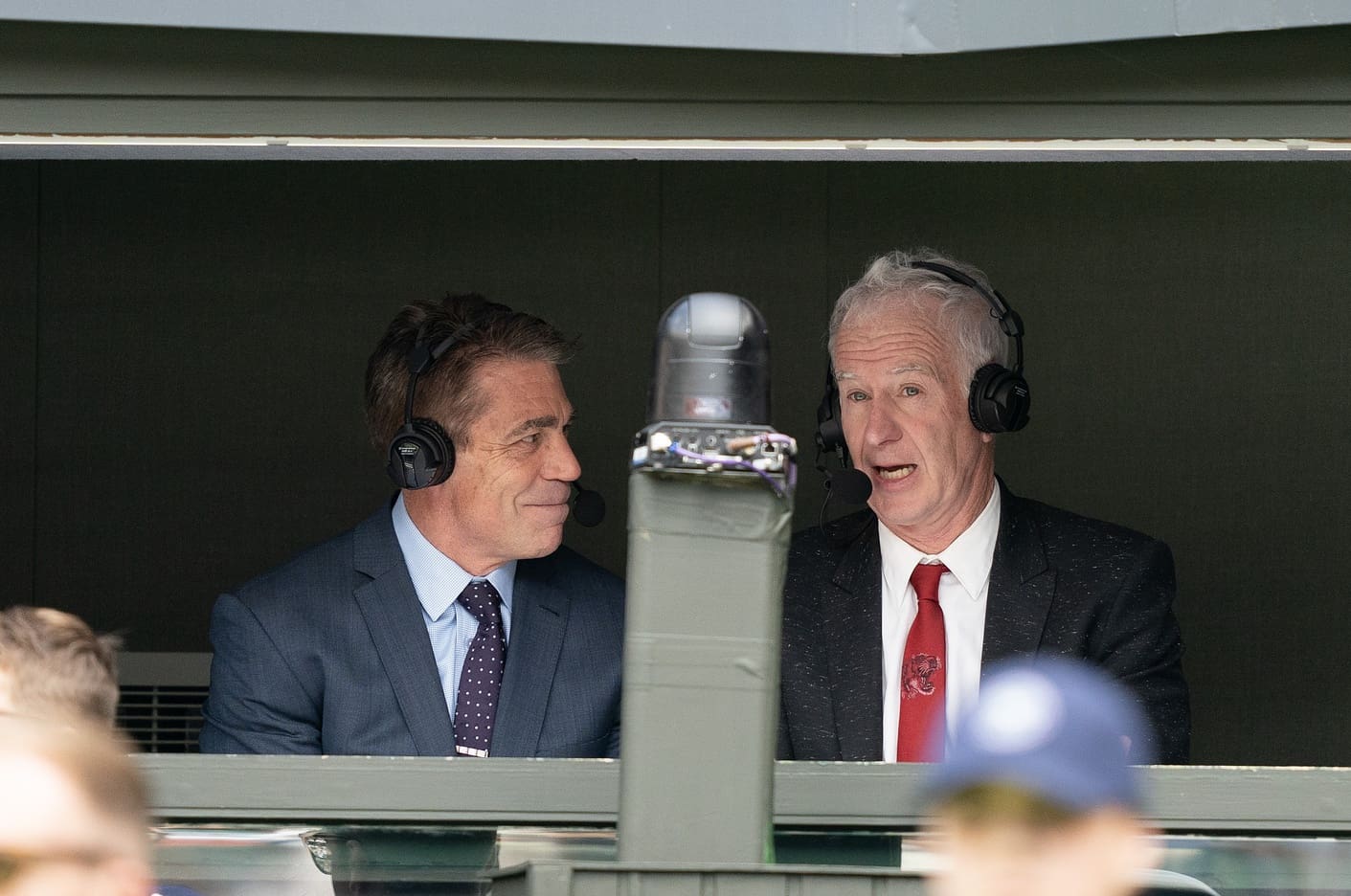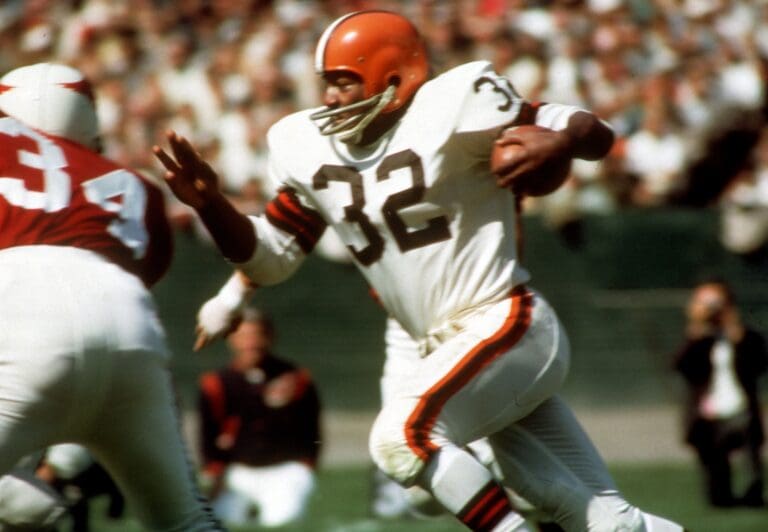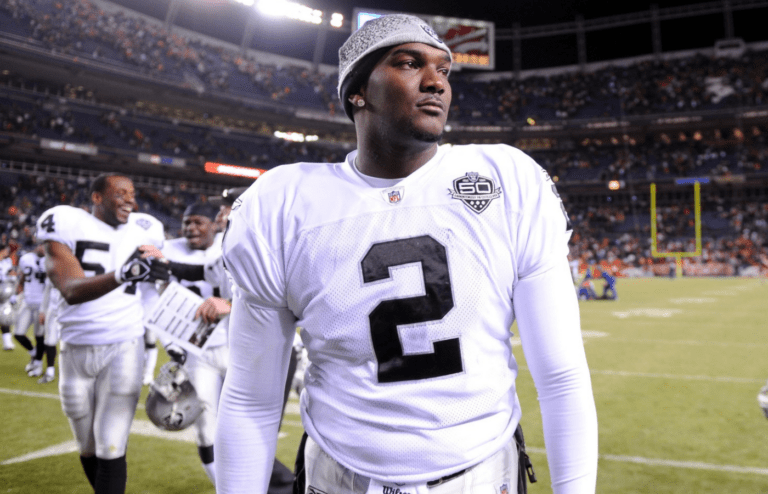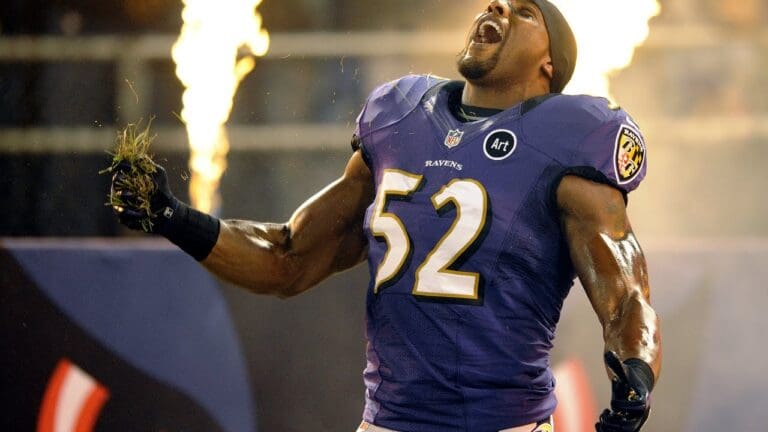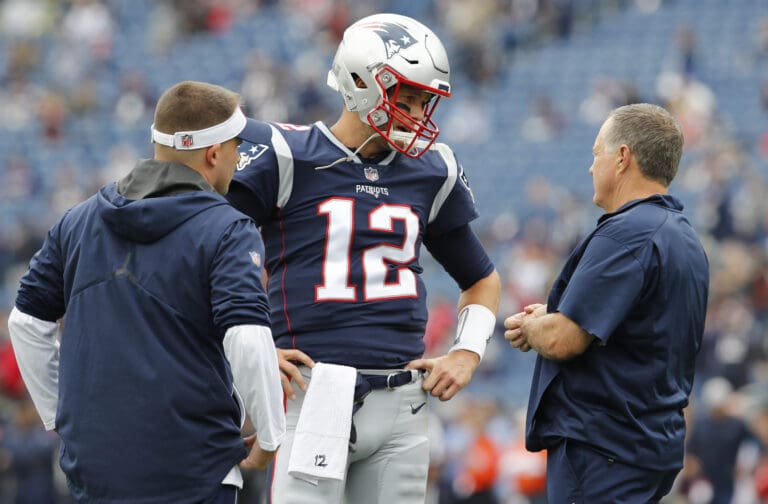Please, I believe it’s time for American television to let go of the McEnroe mic monopoly.
Tennis is a game of precision, grace, and global appeal. But you’d never know it listening to John McEnroe, whose commentary style has devolved into a lazy stream of clichés, mispronunciations, and egotistical ramblings. His decades-long dominance in the broadcast booth on ESPN, NBC, TNT, and even the BBC, feels more like an act of brand inertia than a decision based on quality or insight.
A Commentary Style That’s Grown Stale
McEnroe has long abandoned the effort to offer real analysis. At Wimbledon 2025, during a high-level clash between Novak Djokovic and Alex de Minaur, viewers were treated to pearls like:
- “Highly skilled play there from Djokovic.”
- “He’s found an extra gear.”
- “Who would have thunk it?”
And then there’s the name-mangling: “di Miner,” “de Minhour,” and ultimately “de Manure.”
This isn’t just laziness, it’s disrespectful. Especially when foreign players have their names butchered by someone who can’t be bothered to read a phonetic guide from the ESPN prep binder.
Add in Patrick McEnroe, and the airwaves become a feedback loop of filler and smug chuckles. Patrick’s commentary is a string of vanilla observations, occasionally snide, and almost always unmemorable.
Together, the McEnroes manage to talk a lot while saying very little, like air compressors hissing for hours.
Other Tennis Voices Are Doing It Better
Compare that to what Andy Roddick, Andre Agassi, or Mary Carillo bring to the table. On his podcast Quick Served, Roddick dissects matchups with real substance and humor. Agassi’s recent breakdown of Carlos Alcaraz’s backhand at the French Open was a masterclass in technical analysis and storytelling.
“They don’t know if he is going to pull across or go inside-off. And he can just leave his opponent with their jockstrap on the ground,” Agassi quipped, brilliant, vivid, and illuminating.
These voices prepare, engage, and elevate the sport.
McEnroe, on the other hand, often admits his ignorance live on air, whether it’s asking who Zizou Bergs is or guessing Dimitrov’s top serve speed, only to be corrected by Chris Fowler reading off a stat sheet.
At the 2024 Australian Open, he openly said, “Tell me what you know about him, because I don’t know anything.”
That’s not charming. It’s a dereliction of duty.
At the 2023 Aussie Open, he went further, mocking Juncheng “Jerry” Shang’s name with a cringeworthy joke about Chinese people being named “Jerry.” (Shang grew up in Florida.)
And yet, despite the disrespect, the lack of homework, and the diva behavior (he was late to the 2024 French Open men’s final broadcast), he still gets the top matches.
ESPN and the Enablers
The blame doesn’t fall solely on the McEnroes. It lies with ESPN producers and network execs who continue to hand them the keys to the kingdom, despite the growing chorus of fans craving fresher, more informed perspectives.
This isn’t about “canceling” anyone. It’s about respecting the game and its global audience. Tennis deserves more than regurgitated slogans and careless showboating.
McEnroe’s greatness as a player is undisputed. But the broadcasting craft requires preparation, curiosity, and humility, traits sorely lacking in his current approach.
As the great Edward R. Murrow once said:
“Your voice, amplified to the degree where it reaches from one end of the country to the other, does not confer upon you greater wisdom than when your voice reached only from one end of the bar to the other.”
It’s time to turn the mic over to someone who does the work and gives tennis the voice it deserves.
Read More: 15 Tennis Stars Whose Self-Importance Reached Hall of Fame Levels

